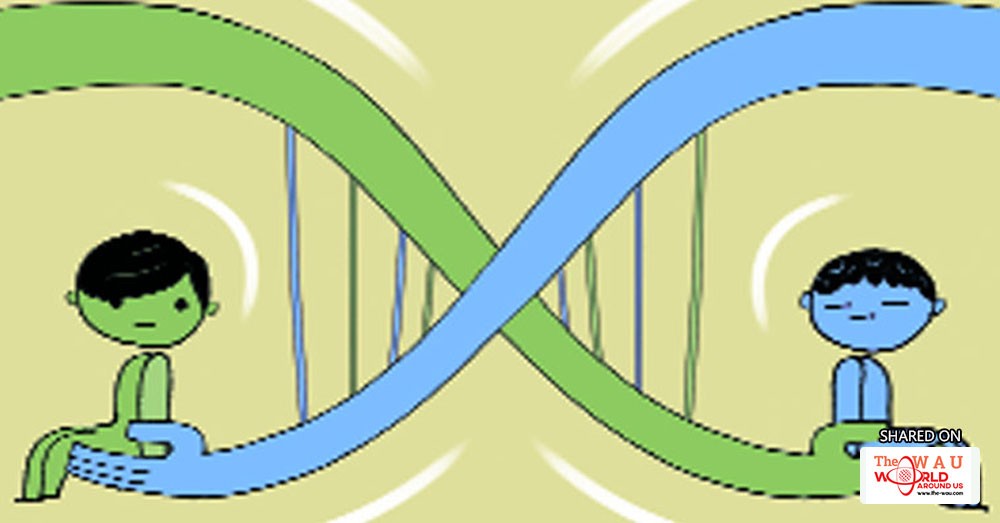Two couples, whose baby sons are believed to have been accidentally exchanged immediately after birth in a government hospital in Assam in March 2015, have rediscovered their original biological sons but have agreed not to exchange them, with the legal formalities likely in two more weeks. Sewali Boro, wife of Anil Boro, a farmer of Bezpara village in Mangaldoi, and Salima Parbin, wife of Sahabuddin Ahmed, a high school teacher of Sialmari in Shyampur, had given birth to their sons at Mangaldoi Civil Hospital on March 11, 2015.
Both families began suspecting within days that the respective babies were not theirs, but it took them two years nine months for them to establish this, with DNA tests of the two babies and the four parents.
“My wife raised doubts about the baby not being ours within about a week of his birth. While she said that the eyes looked typically tribal, I tried to brush aside her doubts. But as she kept insisting, I went to the Civil Hospital, but the then superintendent said my wife must be suffering from mental illness and advised me to consult a psychiatrist,” said Ahmed, who then filed an RTI query and procured the names of all women who had delivered babies in the hospital on that 2015 morning.
Ahmed found a Bodo woman’s name and address. “I went to Bezpara village, about 24 km from ours, but could not muster courage to meet the Bodo family. The same day, I wrote to Anil Boro, the woman’s husband, who called me and dismissed our doubts of an exchange. Boro invited us to his house, however, and after we went there the next morning both families were certain our babies had indeed got exchanged,” Ahmed said.
There, the two couples agreed to exchange the babies, but Boro’s mother objected, Ahmed said. “Some people of Boro’s village suggested we give a written statement to the village committee. The committee called a meeting, but though all agreed that the babies did get exchanged, the gaonburha said there were legal procedures we could not avoid,” he said.
Ahmed submitted a complaint to the superintendent of Mangaldoi Civil Hospital, who set up an investigation board in June 2015 and dismissed his plea four months later. Ahmed next went for a DNA test of himself, his wife and the baby, following which a lab in Hyderabad confirmed there was no biological link between the couple and the baby growing up with them.
“When I took the DNA report to the hospital, the superintendent said it had no legal validity,” he said.
“I then went to the high court, but lawyers said it would take 8-10 years for a final verdict. One lawyer even asked me to deposit his full fee, a huge amount, in advance. I went to police, and I was lucky, as DySP Hemanta Barua took a personal interest in getting an FIR lodged. That was in December 2015,” Ahmed said.
It was only in April 2017 that DySP Barua could finally organise DNA tests of both couples and the babies. “The report took its time, and the DySP finally told us on November 27, 2017, that the DNA tests had established that the babies had got exchanged immediately after birth. He also advised me to register a case against the hospital in the Mangadoi district court, which summoned us on January 4,” he said.
But when the couples reached the court and tried to exchange the babies, each refused to leave the lap of the mother he had grown up with. “Both boys kept clinging to their mothers. Seeing this, we all decided that we should not exchange them and bring them up where they have grown up so far,” Ahmed said. The court has asked both families to file affidavits about their decision, and fixed January 24 as the next date.
Anil Boro said he too had a suspicion that the baby in his wife’s lap wasn’t a tribal. “I had some doubts from the very beginning. But I had kept it strictly to myself, and it was only when Ahmed wrote to when the baby was three months old that I began to think seriously,” Boro said.
“When Ahmed and his wife visited us with their baby, both families were sure something had actually gone wrong somewhere. Thus, my wife and I readily agreed to Ahmed’s proposal for a DNA test. While it took so long to confirm that the two babies had got exchanged, it is a fact that both families now cannot afford to exchange the two boys who have grown up in our respective families,” Boro said.
Boro, a marginal farmer with seven bighas, said he and his wife had discussed the matter with his mother and three brothers. “All have advised us not to exchange the babies again. We will submit an affidavit on January 24 saying we don’t want to exchange them and will bring them up as our own sons,” Boro said.
“Riyan will remain with us and grow up as our son. His sister Chitralekha, who is in Class VI now, too wants Riyan to stay with us,” Boro said. Ahmed said the same thing. “My daughter Nidal does not want that Jonait should be exchanged with Riyan. On January 24, both families will tell the court that we will always remain close relatives,” Ahmed said. Both Boro and Ahmed, however, want that punishment under the law should be handed to the hospital staff responsible for the act of negligence.
Share This Post















